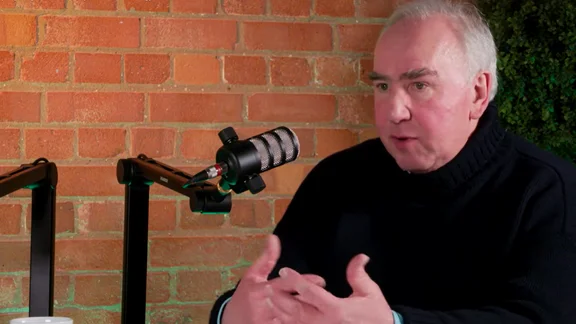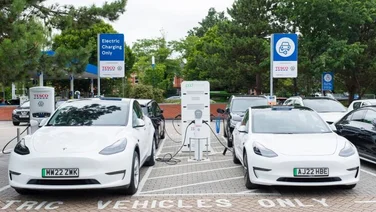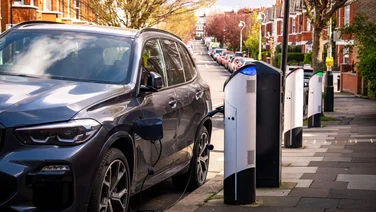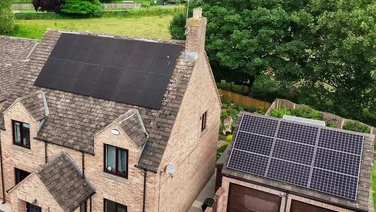Get Free Solar Panel Quotes
Find out how much solar panels would cost you
Do you need solar panels for your home or business?
Fill in our form - Get a free quote - Start saving on energy bills
Why get solar panels?
- Generate free, green electricity
- Reduce your electricity bill by up to 64%
- Get paid for what you don't use
As featured in:



News
The latest news, analysis, guides and opinion.

Does the Warm Homes Plan go far enough?
The Warm Homes Plan won't be fully effective until the Spark Gap is fixed, says Bean Beanland
-
 Go Geothermal announces new CTC EcoAir C100 series heat pump Heating equipment supplier Go Geothermal has unveiled a series of new CTC EcoAir C100 heat pumps.
Go Geothermal announces new CTC EcoAir C100 series heat pump Heating equipment supplier Go Geothermal has unveiled a series of new CTC EcoAir C100 heat pumps. -
 Top plug-in hybrids cost £1,000 more a year than EVs Drivers in the UK could be saving £1,000 a year by choosing an electric vehicle (EV), according to expert analysis which has found that the top-selling plug-in hybrid vehicles (PHEV) are more expensive to run than manufacturers claim.
Top plug-in hybrids cost £1,000 more a year than EVs Drivers in the UK could be saving £1,000 a year by choosing an electric vehicle (EV), according to expert analysis which has found that the top-selling plug-in hybrid vehicles (PHEV) are more expensive to run than manufacturers claim. -
 Donut Lab releases world-first all-solid-state EV battery British battery experts Donut Lab have launched the world’s first solid state electric vehicle (EV) battery, which it claims offers faster charging times, and more energy density, as well as being safer.
Donut Lab releases world-first all-solid-state EV battery British battery experts Donut Lab have launched the world’s first solid state electric vehicle (EV) battery, which it claims offers faster charging times, and more energy density, as well as being safer. -
 Everything you need to know about the Warm Homes Plan The Government's new Warm Homes Plan will increase funding for schemes like the Boiler Upgrade Scheme and help 300,000 homes in the UK.
Everything you need to know about the Warm Homes Plan The Government's new Warm Homes Plan will increase funding for schemes like the Boiler Upgrade Scheme and help 300,000 homes in the UK. -
 Solar booms in US despite Trump’s best efforts Solar met 61% of US electricity growth last year while President Trump does his best to save fossil fuels.
Solar booms in US despite Trump’s best efforts Solar met 61% of US electricity growth last year while President Trump does his best to save fossil fuels. -
 Low-income households at risk of being shut out of EV market Households earning £40,000 a year risk being left behind in the UK’s transition to electric vehicles (EV), according to Autotrader’s No Driver Left Behind 2026 report, posing a threat to the UK’s net zero goals.
Low-income households at risk of being shut out of EV market Households earning £40,000 a year risk being left behind in the UK’s transition to electric vehicles (EV), according to Autotrader’s No Driver Left Behind 2026 report, posing a threat to the UK’s net zero goals. -
 Aira aims to cut energy bills by 90% with new Home Energy System Aira launches Home Energy System in the UK, aiming to cut household energy bills by 90% as part of a new era for the clean energy transition.
Aira aims to cut energy bills by 90% with new Home Energy System Aira launches Home Energy System in the UK, aiming to cut household energy bills by 90% as part of a new era for the clean energy transition. -
 Govt to spend £15bn on Warm Homes Plan The government has confirmed reports that the much-anticipated Warm Homes Plan will be increased by £1.5bn.
Govt to spend £15bn on Warm Homes Plan The government has confirmed reports that the much-anticipated Warm Homes Plan will be increased by £1.5bn. -
 Octopus Energy rolls out Zero Bills to Scotland UK's largest energy company expands £0 energy bill initaitive.
Octopus Energy rolls out Zero Bills to Scotland UK's largest energy company expands £0 energy bill initaitive.

